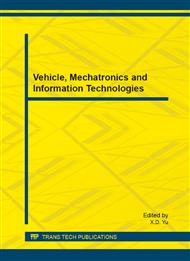p.4188
p.4192
p.4197
p.4202
p.4207
p.4212
p.4219
p.4224
p.4228
The Research on Cooperation Coordination Model of Transboundary Water Pollution
Abstract:
At first, this paper introduced some related domestic and global researches which are about lake basin transboundary water pollution, and put forward several basic assumptions combining the lake basin situation. Based on this foundation, this paper constructed the minimum cost of the whole region, and proposed the cooperation coordination model of the lake basin transboundary water pollution. Then it took advantage of Poyang lake for empirical analysis, and got the function of pollutant reduction cost and function of environmental damage cost by means of multiple regression analysis with the five main data of Poyang lake from 2001 to 2010. Next, through cooperation coordination model establishment and solution, the paper could get the conclusion that compared with the actual pollution reduction plan the model solution is better. At last, the paper talked about the deficiencies and improvement.
Info:
Periodical:
Pages:
4207-4211
Citation:
Online since:
August 2013
Authors:
Price:
Сopyright:
© 2013 Trans Tech Publications Ltd. All Rights Reserved
Share:
Citation:


